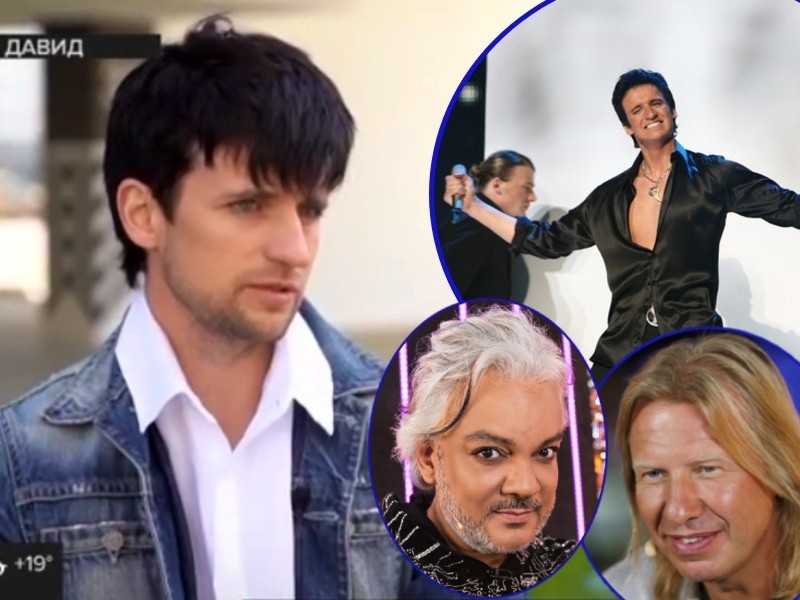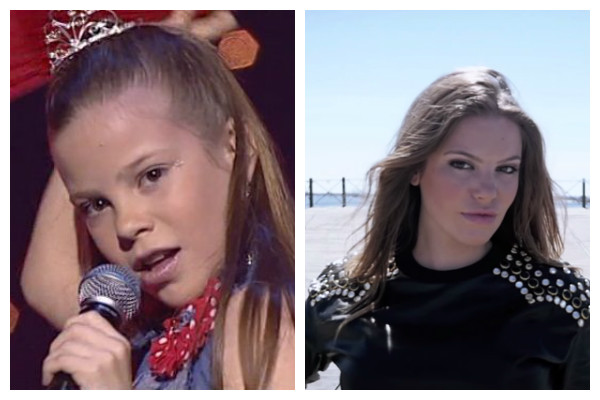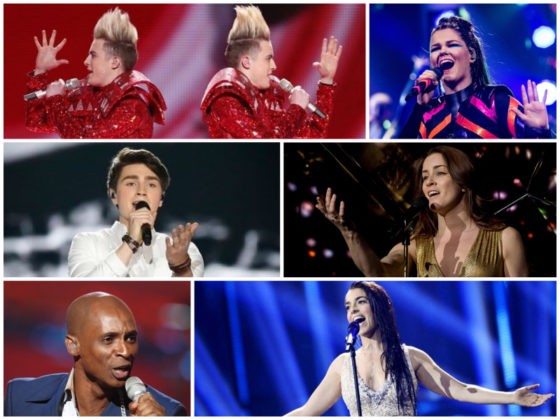With a sixth-place finish, Dmitry Koldun remains Belarus’ most successful Eurovision contestant. However, participating at the contest in 2007 was not an easy journey for the Minsk native. Speaking to David Winner in the first part of the Moskva24 programme Otkroyte, David!, he opened up about the many obstacles he faced going to the contest.
After rising to fame and winning Fabrika Zvyozd, the Russian version of Operacíon Triunfo, in 2006, Koldun signed a record contract with famous producer Viktor Drobysh, who also functioned as the headmaster of the show at that time. However, after one year, Drobysh and Koldun ended their contract prematurely. One of the reasons for the parting was Koldun’s Eurovision 2007 participation with Philipp Kirkorov, with whom Koldun later quarrelled as well.
In a rare open account on Russian television, Koldun has now spoken openly about the conflicts he had with Drobysh and the challenges he experienced during and after Eurovision.
Dmitry Koldun about his path to Eurovision
In Dmitry Koldun’s memories, winning Fabrika Zvyozd on Russia’s Channel One wasn’t the kick start to his career that it seemed to outsiders. Looking back on that time, the Belarusian artist told David Winner:
“After Fabrika Zvyozd, [Drobysh] didn’t give me any new song, even though I had won. Chelsea had songs, Zara had songs, Sogdiana had songs. I had one cover of his old group KGB and one other song called “Prosti za vsyo”, (…) which they even didn’t take on the radio. Viktor [Drobysh] was busy with other projects. I understood, well my career, which I gained on Fabrika Zvyozd (…) is going down the drain. And I decided that I needed to do something further. And the idea of going to Eurovision appeared to me.”
Koldun’s desire for Eurovision already existed prior to his Russian breakthrough. He tried to represent Belarus at Eurovision 2006, but failed to win the country’s national final with his self-written Brit-rock-inspired track “May be”.
Eventually, after Drobysh found out that Koldun strongly desired to go to the contest, he gave him the pop rock song “Get Up”, which he entered into the Belarusian national final for Eurovision 2007. However, Drobysh had given the then 21-year-old a faulty song. Koldun explained to David Winner:
“And then on the last day [of the submission period], the editor of [ESCKAZ], called me and said: “Dmitry, do you know that your song has previously been released five years ago on an album of a Finnish group? You can send the entry, but they will disqualify you.”
Instead of letting this bit of news destroy his ambitions, he sent a demo of a self-written Russian rock track, titled “Angel mechty”, as part of a new application without Drobysh knowing.
How “Work Your Magic” was born out of coincidence
In December 2006, Dimitry Koldun managed to win the first round of Belarus’ Eurovision 2007 selection with “Angel mechty”. Qualifying to the final in January 2007, he became one of the favourites. Koldun added in the interview:
“Then the Ministry called me, and they said: ‘Well, Dmitry, we love you very much, but you have to know that with such a song, you will not represent our country. Well, first, it’s “non-format”, secondly, it’s some kind of rock.’. Viktor [Drobysh] didn’t answer my calls. Completely by coincidence, I met Philipp Kirkorov, who proposed me his own song [“Work Your Magic”].”
“Then Viktor [Drobysh] appeared, who said that I did everything without his consent. He forbade me going to Eurovision. He argued that he already had been in Natalya Podolskaya’s team… [and gave Russia its worst result in many years]. In the end, there was some kind of consensus reached between him and the First Channel that I could go to Eurovision after all.”
Conflicts with producers after Eurovision
With “Work Your Magic”, produced by Philipp Kirkorov and the Dream Team and with lyrics written by Karen Kaveleryan, Koldun became the first Belarusian act to qualify for the Eurovision final in the country’s history. Being a hot favourite for a good position, Dmitry Koldun eventually finished sixth. This remains the country’s only top ten placement to this day.
Shortly after Eurovision, Drobysh and Koldun broke their contract. But the Belarussian star also broke off his friendship with Kirkorov.
Since then, Russian media has sporadically been dominated by mostly negative comments made by Drobysh and Kirkorov on Koldun. In an interview to FAMETIME TV in May, Drobysh noted that his experiences with Dmitry Koldun were the first time he had experienced betrayal, saying that “bags of glitter and presents from Philipp Kirkorov meant more to [Koldun] than a tour with the Scorpions through the whole country”.
Koldun later signed a new contract with Alexander Lunyov, with whom he recorded a whole album. The album was never released as Lunyov also parted ways with Koldun. With his own band, consisting of his friends, Koldun wrote his debut album in 2009 as an indie artist.
Becoming a young indie artist in Eastern Europe
Although on the outside he was a highly successful artist, Koldun didn’t quite experience the star life right after Eurovision. To David Winner, he said:
“There were several acquaintances of both Viktor Drobysh and Philipp Kirkorov that stayed away from me. We are discussing some kind of popularity the whole time that I had, but actually, I had nothing at all. That popularity didn’t belong to me. I had no money, I didn’t have anywhere to live, I didn’t have a car, I didn’t have clothes, I had nothing. “
“Actually, I just ate soup products, just those you buy… frozen fish sticks that I heated up. I remember this story that I lived in a rental apartment that I wouldn’t be paying by myself.”
“I worked as I could. Until now, I am left alone. I started to learn the process with those people I started with. From the very start.”
Since becoming an indie artist, Dmitry Koldun has managed to score several large Russian radio airplay hits. His most recent single “Всё сначала” (All from the start) has accumulated up to 100,000 Spotify streams in the past month, slowly climbing towards a position in the Russian radio airplay top 100.
In the past months, Koldun released a series of acoustic versions of his greatest hits, including the Russian version of his Eurovision entry, titled “Дай мне силу” (Give me power).
Do you still remember “Work Your Magic”? Did these revelations surprise you? Let us know in the comments down below!











From the text, it still remains unclear why Koldun broke off his friendship with Kirkorov.
You didn’t even read it, did you?
Why does he tell his story in 2021, so many years after 2007???
girl what???????
maybe because it involves 3 eurovision characters?
Ironic that people of the Ministry said that Dmitry, a Belarusian, wouldn’t be able to represent Belarus with a self-penned song, but that a song penned by a Bulgarian-born Russian and another Russian could do just that. “Good” representation of the Belarusian music scene, I must say…
I have a far bigger and for me far more disturbing question: why on earth is a Minister involved in a national song selection?
Oh right … it’s Belarus … the tiny new mini-Russia desperate to keep its sovietic values while disrespecting Europe for being on the opposite side of the spectrum.
This makes their exclusion of ESC far more understandable. They come in for hidden agenda reasons other than music… and we will not take it one bit.